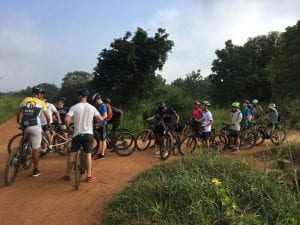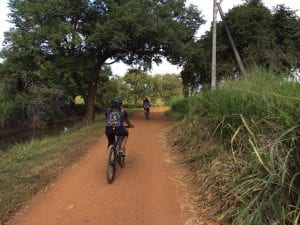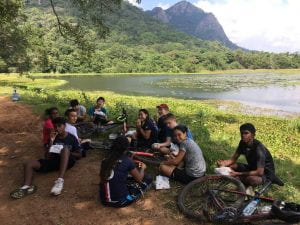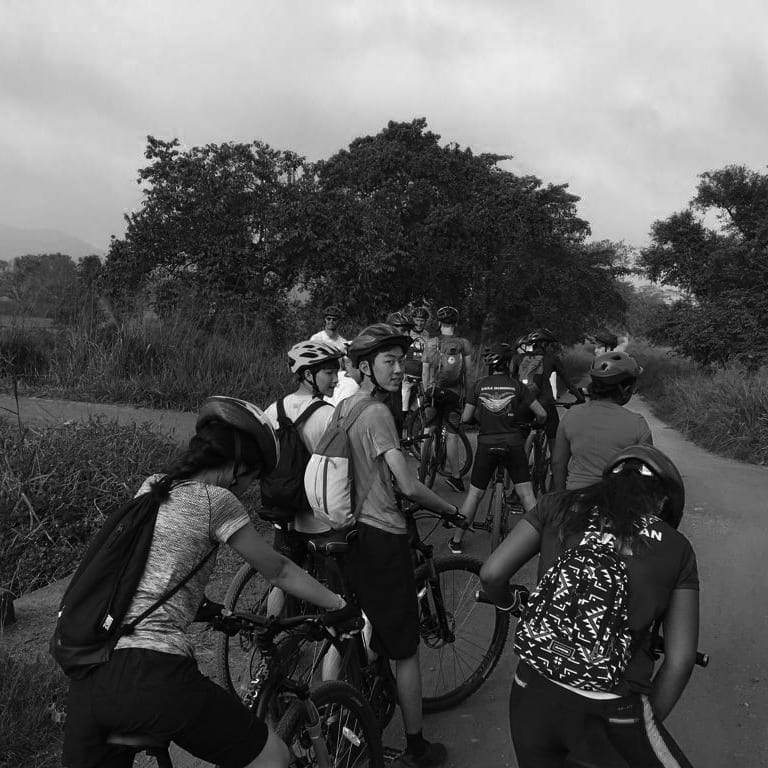My last Week Without Walls was short but memorable. I remember mentally preparing for this trip in the fear of being the last biker, or not staying up to speed with the rest of the group. However, it was not like that at all…

This year I was part of the Venture North trip which was built on the sport of cycling. We were a group of 11 students (Aidan, Anargi, Iris, Talia, Alex, Kenji, Philipe, Junsu, Dulaj, Karven and I) and 3 adults (Ms. Fleming, Mr. O’Sullivan and Mr. Jackson). It was a good group to be a part of and something that truly motivated and pushed me during the trip was the group encouragement and support. Each day we were expected to cycle a certain distance around the town of Dambulla, while also conducting a series of interviews with individuals’ part of the local community. Dambulla is a small town in Sri Lanka not far from Sigiriya. It is known for its major agricultural distribution in the island.
We began our journey with a 5-hour drive, departing Colombo at about 5:45am from OSC. We stopped once at about 11am in a small town in the central province for a snack and tea break. But we hit the road again about 30 minutes later. A very crucial part of Dambulla, that plays a critical role in the distribution of the agricultural products, is the economic center. We were fortunate enough to have the opportunity to visit the economic center and gain an understanding of its role in Dambulla. We learnt that the economic center is where the fruits and vegetables are packaged and distributed or transported to either local individuals, small shops, large supermarkets, or grand hotels, all in the area. We got the chance to have a short conversation with one of the distributers that work at the economic center. Selva is middle-aged man that has been working in the agricultural industry for the last 5 years. Selva begins his day at 8am and ends it at 6pm. He has one son and one daughter, who are both helping provide for the family along with him. His son sells flowers, while his daughter is an information technology teacher. He sells most vegetables that are grown in Sri Lanka, and his business is currently stable. However, outside the economic center, there are certain individuals that face greater challenges by living in this area. We then said our goodbyes to the economic center and continued to drive all the way to the lodge, which we reached at about 1pm. The lodge was very cozy and comforting. I was a very open space with a lot of friendly people. After lunch, we set up our rooms and then received an introduction of road biking. An instructor from Decathlon joined us on the trip, who was very helpful and instructed us on all the procedures and rules of road biking. He warned us about vehicles, animals and people maybe an interruption to our cycling, however, to remain calm and approach the situation with a stop or a movement to one side of the road. He informed us the it was critical that if we were stopping that we notified the rest of the group to avoid injury, and the different gears on the bike. We then went for a short cycle around the area where we got a bit of time to experiment and get comfortable with our bikes and learnt how to work the gears. I found working the gears were a lot more challenging than I had expected, however, after a bit of practice I picked up on it. After the cycle, we returned back to the lodge and finished our day with dinner and reflection-writing.

Day 2 (my last day) was far more intense than day 1. We began our day with a wakeup call at 6:30am, and breakfast at about 7:15am. Straight after breakfast, we immediately got in our gear and were ready to cycle. We hit the road at about 7:30 and we cycled till about 12pm. Today’s cycle was far more scenic and beautiful; however, the distance was far more challenging. At times, I was the last biker, but my group had made it seem not so bad. They were all very supportive and encouraged me to keep up with them. We faced a few problems with dogs and cars as we were riding on a road, however, after a bit of stopping or moving to a side the problem would have been solved. We stopped at about 12pm to pick up some lunch and had some drinks from a small restaurant we had stopped by. We decided that we would cycle up to a scenic point and then break for lunch there, rather than eating at the restaurant. About an hour, we hit the road again and cycled towards a lake where we ate lunch. After lunch, we continued to cycle around the area and that’s when we met Ananda. Ananda sells peanuts for a living and provides for all six of his children and wife. Ananda’s day starts at 3am and ends at 4pm. You may wonder why his day begins so early, and it is to boil the peanuts, so he can begin selling them sooner. In addition to this, he must be careful when boiling as he can only boil a certain amount a day because he cannot sell boiled peanuts the day after. This is Ananda’s main source of income and on average earns about 5000 rupees a day, where he sells 50 bags priced at 100 rupees each. Ananda mentioned that he enjoys selling peanuts, however, he wishes for the opportunity to work a better job that will provide more for himself and his family, as he has been working this job for 30 years. We bought about 5 bags worth of peanuts from him and ate them as a snack throughout the journey back to campus. We ended the day with a swim in the river and some reflection writing about the course of the day.

It was a very bitter-sweet feeling leaving Dumbulla knowing that I was closing a very remarkable chapter of my school life, but all good things must come to an end for more await.

